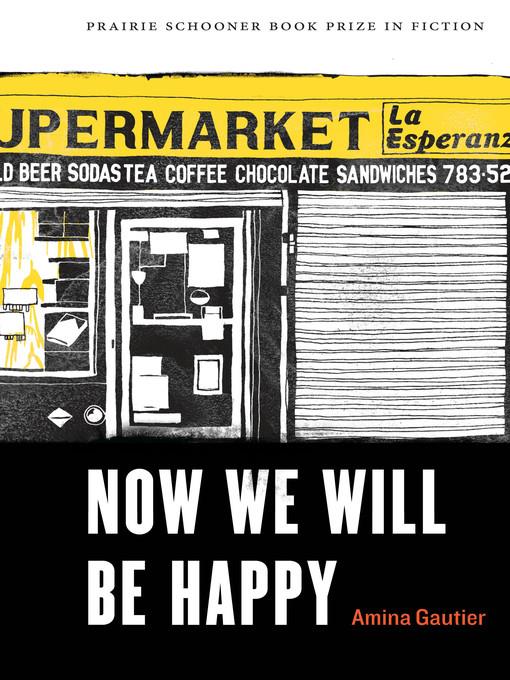
Now We Will Be Happy
The Raz/Shumaker Prairie Schooner Book Prize in Fiction
کتاب های مرتبط
- اطلاعات
- نقد و بررسی
- دیدگاه کاربران
نقد و بررسی

July 21, 2014
The 11 linked stories in Gautier’s debut collection, which won the 2013 Prairie Schooner Book Prize in Fiction, vividly evoke Puerto Rico’s intoxicating, comforting atmosphere—that unbreakable tether binding struggling people in crowded Northeastern U.S. cities to their tropical homeland. “Bodega,” “Only Son,” and “Palabras” feature a couple in search of a better life who move to Brooklyn and run a corner deli, only to have their only son return to his birthplace. “Now We Will Be Happy” and “Muñeca,” meanwhile, depict the abusive marriage of the couple who live next door. Other tales, such as “Aguanile” and “How to Make Flan,” consider multigenerational rifts such as that between a woman and her grandfather, whose only communication with her consists of calling to tell her when one of his favorite musicians—Charlie Palmieri or Héctor Lavoe—has died. Throughout, food and music function as valuable if fragile bridges between otherwise disconnected people. Gautier captures the unique experience, and predicament, of Puerto Ricans living in the mainland U.S.

October 1, 2014
This colorful collection, winner of the Prairie Schooner Book Prize in Fiction, illuminates the hyphenated identities of Afro-Puerto Ricans in the Northeast U.S. and on the island itself. Gautier's (English/Univ. of Miami; At-Risk, 2011) 11 linked stories feature fractured families and intergenerational language barriers. In the raw though tender "Remembering," Manny has no memories of his mother but learns to adopt his older brother's memories as his own: "He was smarter than I was and he knew we would never see her again. So he stopped my tears with memories." In the exquisite "The Last Hurricane," the narrator, a widow raising two children on the island, expresses her frustration with condescending mainland relatives: "[T]hey really don't care and they don't know anything about being a Puerto Rican in Puerto Rico anymore....You have become a postcard to them." Other stories, particularly those that appear in reverse chronological order, feel thin. Nena's bitterness toward her grandfather in "Aguanile" seems misplaced without a better, more complete understanding of her other familial relationships, which only comes later in "How to Make Flan." The title story, centering around the meek and vulnerable Rosa, leaves too many loose ends, leaving the reader unsettled until "Muneca." Still, Gautier writes fresh, spirited characters with stylistic flair: "By the time the other stores on the block open, the sun will be out and the sky will look like a sky, not the way it looks to Nelida now, like an ocean flung high above her head." A verdant, multilayered though uneven collection.
COPYRIGHT(2014) Kirkus Reviews, ALL RIGHTS RESERVED.

September 1, 2014
Gautier's (At-Risk, 2011) vivid collection, winner of the Prairie Schooner Book Prize in Fiction, follows various Puerto Rican characters as they navigate shifting cultural identities and fluctuating relationships and places. In Aguanile, a 12-year-old travels from New York to Puerto Rico to spend the summer with her grandfather, who abandoned his wife and children many years earlier, as an attempt to heal old familial wounds. The title tale follows the tender affair between the married Rosa and Yauba, a cook, who shares with Rosa his dreams to one day leave New York to open his own restaurant. These hopeful perspectives later take a darker tone in Mueca, which reveals the abuse inflicted on Rosa by her frustrated husband, Pedro. Three stories set in Brooklyn follow husband-and-wife bodega owners who, despite their best efforts, are unable to keep their son from relocating to Puerto Rico, leaving his bereft parents trying to understand his reasons for going. Gautier's linked stories deftly capture her characters' internal struggles for identity and home.(Reprinted with permission of Booklist, copyright 2014, American Library Association.)

























دیدگاه کاربران